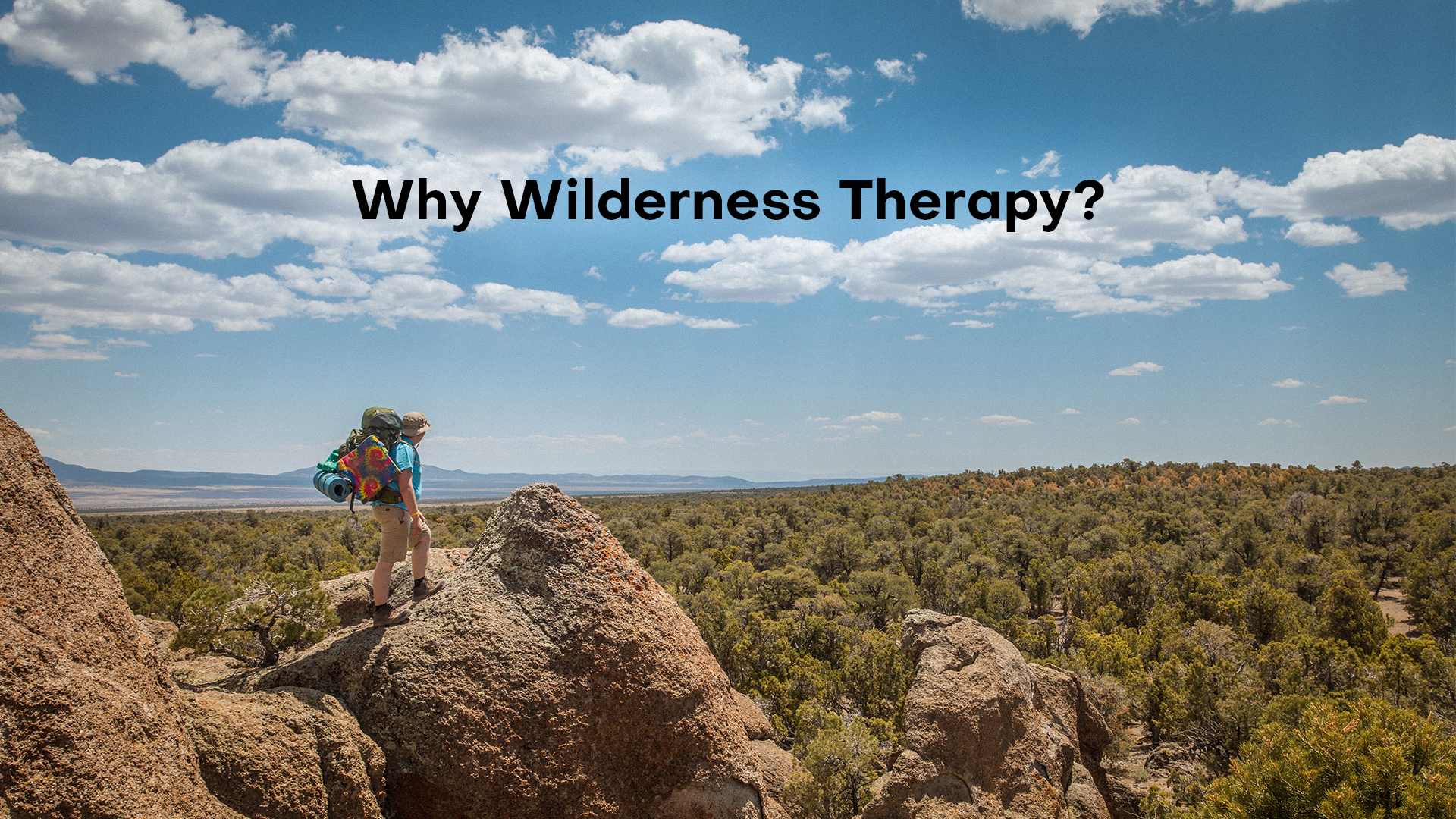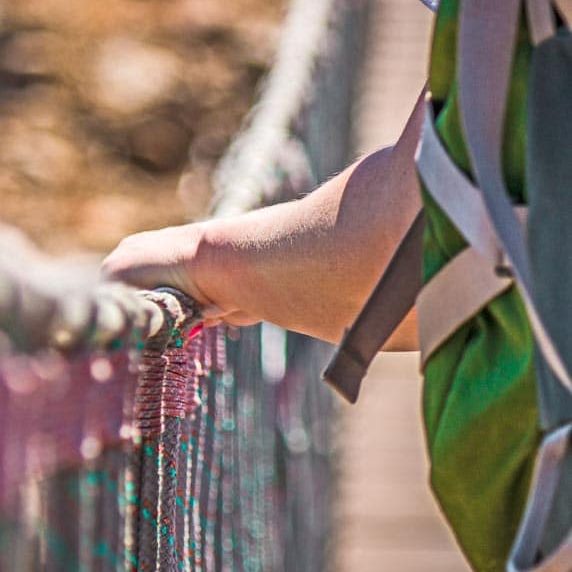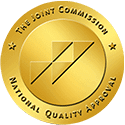
Transforming Lives: How Wilderness Therapy Teaches Anger Management For Teens
Anger management for teens is a complex challenge, but wilderness therapy offers a unique and powerful solution. This innovative approach combines traditional therapy techniques with the transformative power of nature, helping angry teenagers to develop coping skills, increase self-awareness, and build resilience. If you're looking for an effective way to help your teen manage their anger, wilderness therapy is the answer.
Take our teenage anger issues test and see if a wilderness therapy program is right for your family.
As a parent, it's heart-wrenching to see your child struggling. If your teen is having difficulty managing their anger, it can impact the whole family. It's crucial to educate yourself on the signs of anger issues in teens, the root causes, and available treatment options to support your child.
Signs of Anger Issues in a Teenager
While it's normal for teenagers to experience a range of emotions, including anger, it's important to know the difference between typical teenage behavior and anger that may require a more structured treatment program. By recognizing the signs of anger issues in a teenager, parents can take proactive steps to help their child manage their emotions and lead a happier, healthier life.
Here are some common signs that a teenager may be struggling with anger issues:
- Explosive outbursts of intense anger: Teens with anger issues may experience sudden, intense outbursts that can be physically or verbally aggressive.
- Defiant or rebellious behavior: Defiant teenagers may frequently challenge authority, refuse to follow rules, or act out in a deliberately non-compliant manner.
- Difficulty controlling anger: They may have trouble controlling their anger and may lash out at others or engage in destructive behaviors.
- Aggression and violence: Teens with anger issues may display aggressive behaviors, such as hitting or breaking things or destroying property.
- Isolation and withdrawal: They may withdraw from social situations and avoid interacting with others, which can lead to feelings of isolation and loneliness.
- Chronic irritability: Teens with anger issues may experience chronic irritability and may become easily frustrated or annoyed.
- Lack of empathy: They may struggle with understanding the feelings and perspectives of others, which can lead to conflicts with friends and family.
- Trouble in school or work: Anger issues can also interfere with a teenager's ability to succeed in school or work.
- Physical symptoms: Teenagers with anger issues may experience physical symptoms such as headaches, stomachaches, or muscle tension as a result of their intense emotions.
- Negative self-talk: Teens with anger issues may engage in negative self-talk, frequently criticizing themselves or others.
It's important to note that these behaviors can be a normal part of adolescence, but if they are persistent, interfere with daily life, or cause harm to others, it may be a sign that a teenager needs professional help.
You Are Not Alone
RedCliff Ascent is there for you and your family.
Understanding Teen Anger & Defiance
Navigating the teenage years can be a challenging time for both parents and teens, as emotions run high and the need for independence and self-expression can clash with adult authority and expectations. Understanding the signs and causes of teenage anger and defiance can help parents and teens alike find healthy and effective ways to manage these feelings and maintain a positive and supportive family dynamic.
Types of Teen Anger Issues
Teenagers can experience a variety of anger management issues, including:
- Chronic anger: This type of anger is characterized by a persistent feeling of anger or irritability that is not easily relieved.
- Explosive anger: Teenagers with explosive anger have outbursts of anger that are intense, sudden, and often disproportionate to the situation.
- Passive-aggressive behavior: This type of anger is expressed indirectly, through behaviors like sarcasm, procrastination, or sulking, rather than direct confrontation.
- Suppressed anger: Teenagers who suppress their anger may try to ignore or minimize their feelings, but the anger can build up and cause emotional or physical problems.
- Irritability: Teenagers who experience irritability can become easily annoyed, frustrated, or angered by even small things.
- Verbal aggression: This type of anger is expressed through shouting, insults, or threatening language.
It's important for parents to understand that these are not distinct categories, and a teenager may experience a combination of these anger management issues. It's essential to seek help from a professional if your teen is struggling with anger, as this can be a sign of a more significant underlying issue.
Types of Teenage Defiance
Teenage defiance can take many forms, including:
- Backtalk: Teenagers who engage in backtalk are openly defiant, responding to adult authority figures with argumentative or disrespectful language.
- Resistance: Teenagers who resist adult authority figures may refuse to comply with requests or rules, or engage in passive resistance by failing to follow through with expectations.
- Risk-taking behavior: Some teenagers may engage in defiant behavior that involves taking risks, such as breaking rules, engaging in substance use, or engaging in criminal behavior.
- Withdrawal: Defiant teens may retreat from social situations, avoid responsibilities, or become emotionally distant.
- Argumentative behavior: Defiant teenagers may engage in arguments or disputes with adult authority figures, challenging authority and expressing disagreement.
It's important for parents to understand that teenage defiance is a normal part of development, but excessive or chronic defiance can be a sign of an underlying issue, such as anger management problems, mental health issues, or relationship problems. In these cases, seeking professional help can be beneficial.
What Causes Anger Issues in Teens?
Discovering the source of anger in a teenager can be a challenging journey, but one that ultimately leads to greater understanding and the ability to help.
There are several factors that can contribute to anger issues in teens, including:
- Brain development: Adolescence is a time of significant brain development, and changes in the brain can impact a teen's ability to regulate their emotions and control impulsive behavior.
- Hormonal changes: Hormonal changes during puberty can also contribute to mood swings and intense emotions in teens.
- Family environment: Family conflicts, abuse, neglect, or dysfunction can contribute to anger and other emotional difficulties in teens.
- Trauma: Exposure to traumatic experiences, such as abuse, violence, or loss, can impact a teen's emotional regulation and increase the likelihood of anger issues.
- Mental health conditions: Some mental health conditions, such as depression, anxiety, and ADHD, can also contribute to anger and other emotional difficulties in teens.
- Stress: High levels of stress, such as academic pressure, social pressures, and peer conflict, can also contribute to anger and emotional regulation difficulties in teens.
It's important to understand that while some of these factors may contribute to anger issues in teens, there is often more than just one cause; a combination of factors can impact a teen's emotional regulation and behavior.
If you are patient in one moment of anger, you will escape a hundred days of sorrow
Importance of Early Intervention & Treatment for Teen Anger
Early intervention is crucial in addressing anger management issues in teens for several reasons:
- Addressing anger early on can prevent it from becoming a chronic problem and escalating into more severe and potentially harmful behavior.
- Teens are still developing and their brains are more malleable, making it easier for them to learn new coping mechanisms and behaviors. It is harder for adults with more established patterns to learn new anger management skills.
- Addressing anger early on can help build a foundation of healthy coping skills and emotional regulation that can serve them well throughout their lives.
- Early intervention can also help prevent the development of comorbid conditions, such as depression and anxiety, that can arise as a result of untreated anger.
- By addressing defiance early on, parents can help their teens learn to manage their emotions in a healthy way, build positive relationships, and set the stage for a successful future.

Not Seeking Anger Management for Teens Can Be Harmful
Untreated anger management issues and defiance in teens can have long-lasting and negative effects on their mental, emotional, and physical well-being. Some of the effects of untreated anger in teens include:
- Poor relationships with family members, peers, and authority figures.
- Decreased academic performance and difficulty in school.
- Difficulty managing emotions and handling stress.
- Increased risk for physical health problems, such as high blood pressure, headaches, and gastrointestinal problems.
- Increased risk for engaging in maladaptive coping behaviors / negative coping behaviors.
- Difficulty in forming and maintaining healthy relationships in adulthood.
- Increased risk for depression and anxiety.
- Increased risk for self-harm and suicide.
- Difficulty functioning in social, academic, and occupational settings.
It is important for parents to seek help and intervene early to address anger management and defiance issues in their teen.
Early Intervention Is Important For Overcoming Teen Anger Issues
Early intervention refers to recognizing the warning signs of teen anger issues and acting before it gets worse. When you realize that your teen is struggling with anger, it’s important to get professional treatment before it becomes worse.
Early intervention can also save a teen and their loved ones from:
- increased stress
- prevent more serious symptoms and habits from developing
- and reduce the likelihood of problems with family and school.
Plus, it could help reduce long-term medical costs and the overall burden on family and friends. Anger management for teens is possible with the right tools and treatment program. With early intervention, you can help your teen get the support they need and avoid serious consequences.
Anger Mangement Treatment Options for Teens
As a parent, it's important to know the different treatment options available to help your teen manage their anger. Some of the options include:
- Outpatient therapy: This type of therapy is a more traditional approach and can be conducted in a clinical setting. Your teen will meet with a therapist on a regular basis and work through their anger in a controlled environment.
- Community-based programs: Community-based programs offer support and guidance to teens in a non-clinical environment. They may involve anger management classes, group therapy sessions, recreational activities, and skill-building workshops.
- Residential treatment: Residential treatment programs offer a more intensive level of care for teens who need round-the-clock support and structure. These programs can provide a safe and secure environment for your teen to work through their anger and other behavioral issues.
- Wilderness therapy: Wilderness therapy programs use the great outdoors to help teens work through their anger and other emotional issues. These programs involve outdoor activities, group therapy sessions, and individual counseling to help teens develop new coping skills and healthier ways of dealing with their emotions.
Ultimately, the best option for your teen will depend on their individual needs and the severity of their anger management issues. It's important to work with a mental health professional to determine the best course of action.
What is Wilderness Therapy?
Wilderness therapy is a type of anger management treatment for teens that uses nature, wilderness activities, and therapy as a means to address and heal teen anger and defiance. Wilderness therapy takes full advantage of the outdoors and its ability to foster change. The outdoors provide teens with a contrasting environment to observe aspects of themselves that are often overlooked in traditional talk therapy.
As the leader in wilderness therapy, RedCliff Ascent is an effective treatment program for struggling teens aged 13-17. RedCliff Ascent’s safe, nurturing, and supportive environment provides teens with the skills they need to cope in a healthy and age-appropriate way.

Benefits of Wilderness Therapy for Defiant Teens
Being immersed in nature can have a profound impact on a teenager. It improves their mental, emotional and physical health. When combined with a trusted clinical approach, a therapeutic wilderness experience helps defiant teens heal their anger issues. Here are five specific benefits your family can expect to see while your teen is in wilderness therapy.
Anger & defiance is often a symptom of deeper mental health struggles rather than the cause of them. Research indicates accurate mental health assessments can lead to a 20% reduction in treatment.
Wilderness therapy provides a novel and challenging environment that disrupts the unhealthy patterns that cause your teen's anger or are a result of your teen's anger.
Teens living with severe anger issues often struggle to engage in ongoing treatment and have very high dropout rates. Poor engagement may lead to worse clinical outcomes, with symptom relapse and rehospitalization. Our research shows that even teens who have been resistant to therapy engage in the process while in wilderness therapy.
RedCliff Ascent’s safe, nurturing, and supportive environment provides teens with the social and emotional learning skills they need to re-engage in healthy development.
If you're like most parents, you don't want to just get rid of your teen's anger issues. You want them to eventually become thriving, independent adults equipped with the skills necessary to succeed outside your home. These include:
Resilience - the ability to successfully adapt to challenging situations despite risk and adversity. Resilience helps us develop social competence, problem-solving skills, critical consciousness, autonomy, and a sense of purpose.
Leadership & Social Competence skills include qualities such as:
- responsiveness, especially the ability to elicit positive responses from others
- flexibility
- empathy
- communication skills
- and a sense of humor
Problem-solving skills - the ability to plan; to be resourceful in seeking help from others; and to think critically, creatively, and reflectively.
Autonomy is having a sense of one’s own identity and an ability to act independently and to exert some control over one’s environment, including a sense of task mastery, internal locus of control, and self-efficacy. The development of resistance (refusing to accept negative messages about oneself) and of detachment (distancing oneself from dysfunction) serves as a powerful protector of autonomy.
Sense of Purpose and a belief in a bright future, including goal direction, educational aspirations, achievement motivation, persistence, hopefulness, optimism, and spiritual connectedness.
98% of students report feeling connected to RedCliff's staff and one or more of their peers.
Upon completion of the program, 86% of parents reported improvement in their child's problems when compared to when they entered
12 months after treatment 86% of parents reported that their child's problems are improved since they completed treatment
How Does Wilderness Therapy Work?
RedCliff Ascent has helped angry teenagers for almost 30 years and has conducted research since its inception. Through our research, we have identified seven principles that actually make a difference in helping your whole family recover from your teen's anger issues.

Healthy relationships are not only the foundation for growth and development but the launchpad for a successful future as well.
Your teen will live in a small group where social influence and feedback can be given and received in a safe and supportive way. This safe environment teaches your teen to build healthy relationships with both their peers and mentors. Having the skills to make and keep healthy relationships is essential to overcoming anger issues.
Anger management for teens is most effective when it is responsive to your teen’s specific struggles, strengths, personality, sociocultural context, and preferences. Our evidence-based treatment approach combines decades of research and clinical expertise to personalize a treatment plan that fits your teen’s unique struggles, characteristics, culture, and preferences.
One common theme in feedback from RedCliff Ascent’s students is that the challenging and novel environment provided them with a new perspective on their life and everything they knew before wilderness therapy.
Novel physical environments are a place of contrast that confront the world views your teen takes for granted. This helps your teen to see with a fresh perspective and see new options available to them. Growth occurs outside of the comfort zone and is accelerated in environments that push physical and mental limits.
Your teen's anger issues didn't develop in isolation, it affects everyone in your family. The healing process should apply to your whole family as well. Parental involvement and family support during treatment greatly increase your teen’s progress in treatment and helps them to adapt after treatment.
Communicating through handwritten letters provides a novel and powerful way to work through your family's struggles. You will also have access to our parent resource library, a weekly support call with other parents like you, as well as a weekly session with your child's therapist.
Your teen's anger fills every aspect of their life. The best anger management programs must heal every part of their life as well. They use a holistic and integrated approach so that every aspect of your teen's life can heal from anger. In our treatment program, mentors, therapists, doctors, nurses, academic directors, nutritionists, and everyone on your teen's treatment team will meet together each week to discuss how to best help your child.
Exclusionary criteria for RedCliff Ascent include:
- Teens younger than 13 and older than 17.5
- Teens with a physical limitation, i.e. wheelchair, crutches, etc.
- Teens with conditions that need intensive medical care or monitoring, i.e. eating disorders, diabetes, etc.
- Teens with a history of violence or sexual assault
- Teens with psychosis or schizophrenia
RedCliff Ascent does not take Medicare or Medicaid.
What Our Clients Say About RedCliff Ascent
I’d like to let you know how delighted I am with the RedCliff program and how impressive the hard work and dedication of the staff is...We feel that your program has very probably saved this child’s life and given us back our son.
- Kathy
We are very pleased with [our daughter's] self-improvements. A year ago we would not have dreamed all this to be possible! The path she head down was self-destruction. The impact of the RedCliff program is what turned [her] around. Our headstrong daughter was able to take stock of her past behavior, deal with her anger towards us, and begin to move in a more positive direction.
Even though sending her to RedCliff was a gut-wrenching decision, we know we did the right thing. We are thankful for the help and insight you gave to her and us.
- Clark and Irene
Since [our son] went to RedCliff we have all been transformed, but none as much as he. All of his teachers had nothing but good things to say about him. There have been no behavior issues at school this year. As a matter of fact, his teachers stated that they would like it if they had more students like Rob in their classes. I cried again at this meeting, but this time they were tears of joy.
- Julie


Backed by The Joint Commission which ensures programs adhere to the highest quality of clinical and medical practices.

Designated as a NATSAP Research Program, showing our commitment to well-researched practices in our program.

We are also OBH Accredited through the Association of Experiential Education (AEE) which regulates wilderness therapy practices.

Full member of the National Association of Therapeutic Schools and Programs (NATSAP), which ensure regulation of programs that serve children and adolescents.

RedCliff Ascent is fully licensed in the state of Utah.

Backed by the Association of Experiential Education (AEE) that ensures programs maintain appropriate professional behavior and risk management.

Founding member of the OBH Council (Outdoor Behavioral Healthcare Council).

Founding member of Choose Mental Health, guiding families with questions about mental health.
Every teen’s strengths and challenges are different. Complete the no-obligation teen assessment below to help us understand your family’s needs.
We respect your privacy and will never share your information.
We’re here to help - take the first step and contact us to see if wilderness therapy could be the path to healing for your family.
